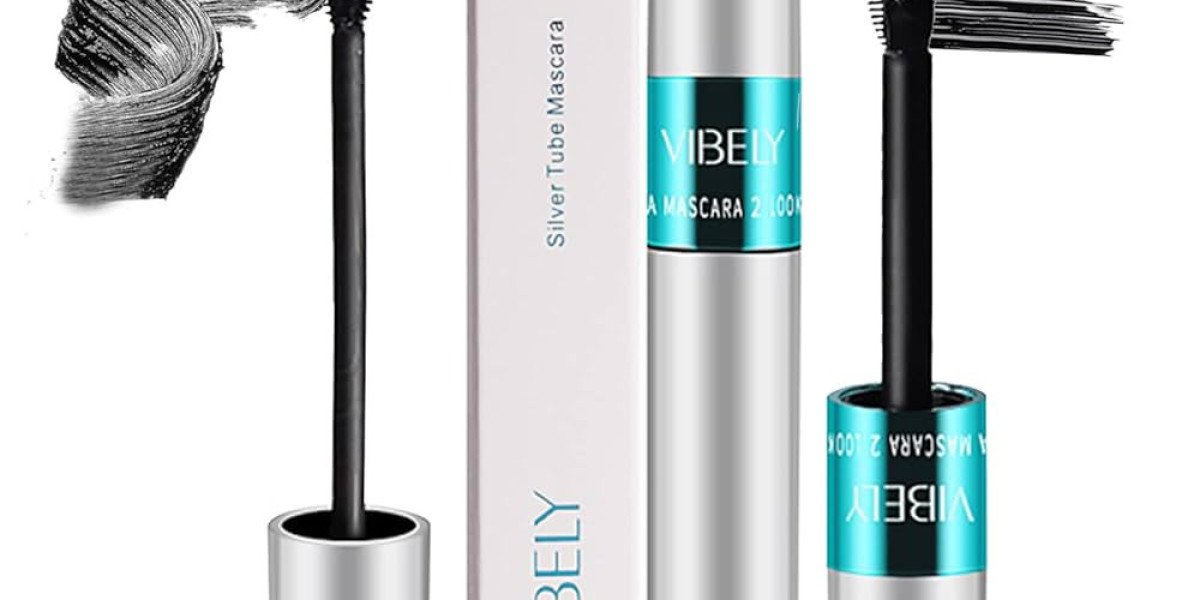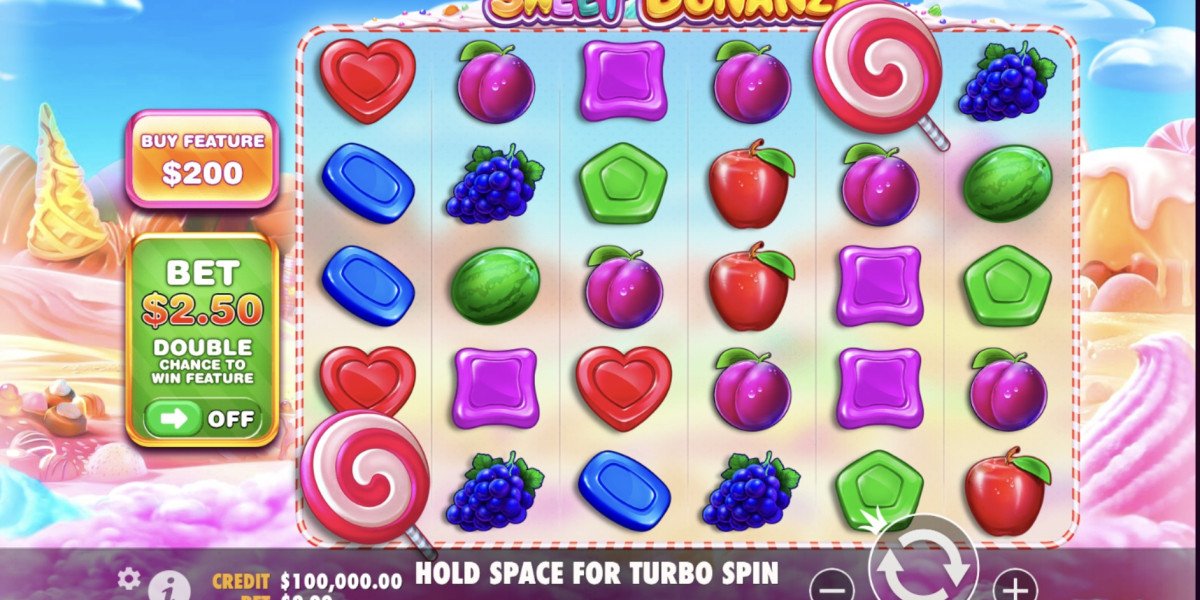Remember that awkward moment when someone hands you their business card, and you smile politely while knowing it'll probably end up in your junk drawer? Or worse, what about those times you forgot your cards at home right before a crucial networking event? Well, there's a sleek, modern solution that's revolutionizing how professionals connect: NFC business cards. These smart cards are transforming the traditional exchange of contact information into a seamless, instantaneous digital experience. As we move deeper into an era where contactless technology dominates everything from payments to door locks, it's time to explore why NFC business cards are quickly becoming the must-have networking tool for forward-thinking professionals.
What Exactly Are NFC Business Cards?
NFC business cards leverage Near Field Communication technology to share your contact information wirelessly with just a simple tap. Unlike traditional paper cards that require manual data entry, these innovative cards use radio frequency identification to transmit your details directly to a smartphone. The technology operates on the same principle as contactless payment systems like Apple Pay or Google Wallet.
The beauty of NFC-enabled cards lies in their simplicity. You don't need any special apps or complicated setup procedures. When someone taps their smartphone against your NFC card, it instantly triggers an action—typically opening your digital business card, contact profile, or professional website. The whole exchange takes less than two seconds, making it faster and more efficient than fumbling through wallets for paper cards or manually typing contact information into phones.
The Technology Behind the Magic
Near Field Communication operates through electromagnetic radio fields at a frequency of 13.56 MHz. This short-range wireless technology allows two devices to communicate when they're within approximately four centimeters of each other. The NFC chip embedded in your business card contains an antenna and a small amount of memory that stores your contact information and desired actions.
What makes this technology particularly impressive is its passive nature. The NFC tag inside your card doesn't require a battery or power source. Instead, it draws energy from the electromagnetic field generated by the smartphone scanning it. This means your card will work indefinitely without maintenance or charging. The chip can be programmed to direct users to various destinations: a vCard file that automatically saves your contact, a LinkedIn profile, a custom landing page, or even a portfolio website.
Modern smartphones have native NFC support built into their operating systems. iPhones (starting from iPhone 7) and most Android devices manufactured after 2014 come equipped with NFC readers. This widespread compatibility means you can share your information with nearly anyone without worrying about technical limitations or compatibility issues.
Environmental Benefits That Actually Matter
The environmental impact of traditional business cards is staggering. According to industry estimates, businesses print billions of paper cards annually, with approximately 88% ending up in the trash within a week. That's an enormous amount of paper waste, ink, and energy consumed for something that barely serves its purpose before being discarded.
NFC business cards offer a genuinely sustainable alternative. One digital card can last for years, eliminating the need for constant reprinting. Think about how many times you've changed jobs, updated your phone number, or revised your email address. Each change typically requires throwing away outdated cards and ordering fresh batches. With programmable NFC cards, you simply update your digital information online, and your card instantly reflects these changes.
Beyond reducing paper waste, digital cards eliminate the carbon footprint associated with printing, shipping, and delivering traditional business cards. The manufacturing process for paper cards involves chemical treatments, ink production, and transportation emissions. By switching to NFC technology, professionals can significantly reduce their environmental impact while projecting an image of environmental consciousness that resonates with today's sustainability-minded business culture.
Cost-Effectiveness in the Long Run
At first glance, NFC business cards might seem more expensive than their paper counterparts. A quality NFC card typically costs between $2 to $20, while traditional cards cost just pennies each. However, this initial investment pays dividends when you consider the bigger picture.
Paper cards require frequent reordering. Every time your contact information changes, your entire stock becomes obsolete. A typical professional might go through several batches of traditional cards throughout their career, especially if they're actively networking or frequently change positions. When you factor in design costs, printing fees, and shipping charges, these expenses accumulate quickly.
NFC cards eliminate this recurring cost cycle. Your one-time investment continues working indefinitely because you can update the linked information whenever necessary without replacing the physical card. Additionally, you'll never experience the frustration of running out of cards at critical moments or paying rush fees for emergency reprints. The return on investment becomes particularly attractive for entrepreneurs, freelancers, and sales professionals who network extensively.
Standing Out in a Sea of Paper
In any networking situation, memorability is currency. When everyone else is handing out standard paper cards, presenting an NFC business card immediately differentiates you as an innovative, tech-savvy professional. This distinction creates a memorable first impression that keeps you top-of-mind long after the initial meeting.
The "wow factor" of NFC cards shouldn't be underestimated. When you tap your card against someone's phone and they watch your information instantly appear, it sparks conversation and demonstrates your commitment to staying ahead of technological trends. This memorable interaction increases the likelihood that they'll follow up with you and remember your conversation.
For creative professionals, entrepreneurs, and anyone in technology-related fields, an NFC card reinforces your brand positioning as forward-thinking and digitally fluent. It's a subtle but powerful way to demonstrate that you embrace innovation not just in words, but in practice. This consistency between message and medium strengthens your professional credibility.
Enhanced Information Sharing Capabilities
Traditional business cards are limited by physical space constraints. You can only fit so much information on a small piece of cardstock before it becomes cluttered and unreadable. NFC business cards break free from these limitations, allowing you to share comprehensive information through linked digital profiles.
When someone scans your NFC card, they can access your complete professional ecosystem. Link them to your LinkedIn profile, portfolio website, video introduction, calendar booking system, or all of the above. You can showcase your work samples, client testimonials, recent projects, and social media channels without overwhelming them with information upfront. They choose what to explore based on their interest and needs.
This expanded capability transforms the business card from a simple contact repository into a gateway to your entire professional presence. For designers, photographers, writers, and other creative professionals, this means potential clients can immediately view your work. For service providers, it enables instant appointment scheduling. For sales professionals, it can link to product catalogs or demonstration videos.
Hygiene and Safety in a Post-Pandemic World
The COVID-19 pandemic fundamentally changed how we think about physical contact and shared surfaces. While we've adapted to new normals, concerns about hygiene and contamination remain relevant, particularly in professional settings where you're constantly meeting new people and exchanging items.
NFC business cards address these concerns by minimizing physical contact. Instead of handling multiple cards throughout a networking event and touching numerous surfaces, you simply present your card for a contactless tap. This reduces the transmission of germs while maintaining professional courtesy and etiquette.
The contactless nature of NFC technology aligns perfectly with other health-conscious practices that have become standard in business environments. Just as contactless payments replaced chip-and-sign transactions, contactless information sharing represents the logical evolution of professional networking in our health-aware society. This isn't just about pandemic precautions; it's about establishing sustainable practices that respect personal space and health considerations.
Analytics and Tracking Capabilities
One underappreciated advantage of NFC business cards is the ability to track engagement and gather insights about your networking effectiveness. Many NFC card platforms offer analytics dashboards that show when and where your card was tapped, which links were clicked, and how recipients engaged with your information.
These metrics provide valuable feedback about your networking efforts. You can identify which events generate the most meaningful connections, understand which aspects of your professional profile attract the most interest, and refine your networking strategy based on real data rather than guesswork. This analytical capability transforms networking from a purely subjective activity into something measurable and optimizable.
For sales professionals and business development representatives, these insights are particularly valuable. Tracking engagement helps prioritize follow-ups, identify hot leads, and measure ROI on networking investments. When you know exactly which contacts engaged deeply with your information versus those who simply saved your details, you can tailor your outreach accordingly and focus energy where it's most likely to yield results.
Easy Updates and Real-Time Information
Perhaps one of the most practical advantages of NFC business cards is the ability to update your information instantly without physical replacements. Changed your phone number? Updated your job title? Moved to a new company? Simply log into your NFC card management platform and update your digital profile. The next time someone scans your card, they'll receive your current information.
This real-time updating capability eliminates the awkward situation of handing out cards with outdated information or the wasteful practice of discarding perfectly good cards because one detail changed. It ensures that your networking efforts always represent your current professional status accurately.
The flexibility extends beyond basic contact information. You can seasonally update links to highlight current projects, special promotions, or relevant content. If you're launching a new product, promoting a recent publication, or showcasing a fresh portfolio piece, you can temporarily feature it through your NFC card link. This dynamic approach to business cards keeps your networking tool as current and relevant as your professional activities.
Compatibility and Ease of Use
One common concern about adopting new technology is compatibility issues. Will it work with everyone's phone? What about older devices? Fortunately, NFC business cards are remarkably accessible. Most smartphones manufactured in the past decade include NFC capabilities, covering the vast majority of your potential networking contacts.
For the small percentage who might have older phones without NFC, quality NFC cards often include backup options. Many cards feature QR codes that serve the same function as the NFC chip, ensuring no one is left out. Some advanced cards even include writable surfaces, allowing you to jot down information manually if absolutely necessary, though this scenario is increasingly rare.
The user experience is refreshingly simple. Recipients don't need to download special apps, create accounts, or navigate complicated interfaces. The tap-and-go interaction is intuitive enough that even people unfamiliar with NFC technology can successfully scan your card on their first attempt. This ease of use removes friction from the networking process, making connections smoother and more pleasant for everyone involved.
Integration with Digital Marketing Strategies
NFC business cards seamlessly integrate into broader digital marketing and personal branding strategies. They serve as physical-to-digital bridges that connect offline networking with your online presence. This integration creates a cohesive professional ecosystem where all your marketing efforts reinforce each other.
When someone scans your NFC card, you can direct them to strategically designed landing pages that guide them through your professional narrative. These pages can include email subscription options, helping you build your mailing list directly from networking interactions. You can integrate social media follow buttons, enabling instant connections across multiple platforms with a single tap.
For content creators, coaches, consultants, and entrepreneurs, this integration is particularly powerful. Your NFC card becomes a tool for audience building and community development, not just contact exchange. Every networking interaction transforms into a potential entry point for deeper engagement with your content and offerings. This multiplier effect maximizes the value of each connection you make.
Security and Privacy Considerations
As with any technology that involves data sharing, security and privacy are legitimate concerns. Reputable NFC business card providers take these matters seriously, implementing encryption and secure data transmission protocols. The information stored on the NFC chip itself is typically minimal—usually just a URL that redirects to your digital profile, rather than storing sensitive data directly on the chip.
You maintain control over what information you share and can adjust privacy settings through your card management platform. If you have concerns about certain details being publicly accessible, you can require authentication before revealing sensitive information like direct phone numbers or personal email addresses. This granular control lets you balance accessibility with privacy based on your comfort level and professional needs.
It's also worth noting that NFC technology is inherently more secure than traditional business cards in some ways. Paper cards can be easily photographed, copied, or distributed without your knowledge. Digital profiles linked through NFC can be monitored, controlled, and even deactivated if necessary. You can see who accessed your information and when, providing transparency that simply isn't possible with paper cards.
The Social Proof Factor
There's something to be said about being an early adopter of beneficial technology. When you use NFC business cards while they're still relatively novel, you position yourself as an innovator and thought leader. This positioning carries social proof value that extends beyond the practical benefits of the cards themselves.
People notice when someone brings fresh ideas and modern solutions to traditional practices. Your willingness to adopt and promote better ways of doing things signals to others that you're someone who thinks critically, values efficiency, and isn't bound by "we've always done it this way" thinking. These qualities are attractive to potential clients, employers, collaborators, and partners.
As more professionals adopt NFC business cards, the social proof factor will evolve from "innovative early adopter" to "competent professional using standard tools." Getting ahead of this curve means you benefit from the innovation premium while the technology is fresh, and then seamlessly transition to using it as a professional standard as adoption increases. Either way, you're positioned advantageously.
Customization and Brand Consistency
NFC business cards offer extensive customization options that help maintain brand consistency across all touchpoints. The physical cards themselves can be designed to match your brand aesthetic, from minimalist metal cards that convey sophistication to colorful plastic cards that express creativity. The material, finish, and design options are as diverse as traditional business cards, if not more so.
Beyond the physical design, the digital experience can be fully customized to reflect your brand identity. The landing page or digital business card that appears when someone scans your NFC card should mirror your brand colors, fonts, messaging, and overall visual identity. This consistency reinforces brand recognition and creates a cohesive professional impression.
For businesses, this customization extends to team-wide implementations. Companies can provide employees with branded NFC cards that direct to individual profiles within a consistent company framework. This approach maintains brand unity while allowing personal differentiation, creating a professional ecosystem where individual team members represent the larger brand identity.
Future-Proofing Your Professional Network
Technology moves quickly, and staying ahead of trends provides competitive advantages. NFC business cards represent not just a current solution, but a future-proof investment in your professional networking infrastructure. As contactless technology becomes increasingly ubiquitous, familiarity and comfort with these systems will be expected rather than exceptional.
The infrastructure supporting NFC technology continues to expand and improve. Payment systems, access control, data sharing, and countless other applications are being built on NFC foundations. By adopting NFC business cards now, you're developing familiarity with technology that will likely become even more integrated into professional and personal life.
Moreover, as the technology matures, the capabilities will only expand. Future iterations might include enhanced analytics, augmented reality integrations, blockchain verification, or features we haven't yet imagined. By establishing your presence in this ecosystem now, you're positioning yourself to take advantage of these innovations as they emerge.
Making the Transition from Traditional Cards
If you're convinced that Digital Business Cards are worth exploring, the transition process is straightforward. Start by researching reputable NFC card providers and comparing their offerings. Look for platforms that offer good analytics, easy updating capabilities, attractive card designs, and reliable customer support.
Many professionals find value in maintaining both NFC and traditional cards during a transition period. This hybrid approach ensures you're prepared for any situation while you build confidence with the new technology. Over time, you'll likely find yourself reaching for the NFC card first and keeping traditional cards only as backup options.
When introducing your NFC card in networking situations, a simple explanation enhances the experience: "Here's my digital business card—just tap it against your phone." This brief introduction sets expectations and makes the interaction smoother, especially with people who might be encountering NFC cards for the first time. Most people react with genuine interest and appreciation for the innovation.
Frequently Asked Questions
Do NFC business cards work with all smartphones?
NFC business cards work with most modern smartphones, including iPhones (iPhone 7 and newer) and the majority of Android devices manufactured after 2014. The technology is widely supported, and most people you'll network with will have compatible devices. For rare instances where someone has an older phone without NFC, many cards include QR codes as a backup option that works with any smartphone camera.
Can I update my information after I've already shared my NFC card?
Absolutely! This is one of the biggest advantages of NFC business cards. You can update your contact information, job title, links, and other details anytime through your card's management platform. The next time someone scans your card, they'll see the updated information. Previously shared contacts won't automatically update in recipients' phones, but they can rescan your card if needed.
Are NFC business cards expensive?
NFC business cards typically cost between $2 and $20 per card, depending on the material, design, and features. While this is more expensive than traditional paper cards upfront, they're cost-effective long-term because you don't need to reorder when information changes. One NFC card can last years and replace multiple batches of traditional cards.
Is my information secure on an NFC business card?
Yes, NFC business cards are generally secure. The chip itself typically stores only a URL that links to your digital profile rather than your actual contact information. Reputable providers use encryption and secure data transmission. You control what information is displayed and can adjust privacy settings. The technology is as secure as contactless payment systems, which have proven safe through widespread use.
What happens if I lose my NFC business card?
If you lose your NFC card, you can deactivate it through your card management platform to prevent unauthorized use. Since the card typically only links to your public professional profile (not sensitive data), the security risk is minimal. You can order a replacement card and program it with the same information. Some providers offer multiple cards at discounted rates specifically for this reason.
Can I use NFC business cards for team members or employees?
Definitely! Many businesses provide NFC cards to all team members as part of their professional branding. Most NFC card platforms offer bulk ordering with volume discounts and allow you to manage multiple cards under one account. Each employee can have personalized information while maintaining consistent company branding across all cards.
Do recipients need a special app to receive my information?
No, recipients don't need any special apps. Modern smartphones have NFC reading capabilities built into their operating systems. When they tap your card against their phone, it automatically triggers the action (such as opening your digital business card) without requiring any downloads or additional software.
How long do NFC business cards last?
NFC business cards are extremely durable and can last for many years with normal use. The NFC chip doesn't require a battery and won't degrade over time. The physical card's lifespan depends on the material—plastic cards can last 3-5 years, while metal cards can last indefinitely. Since you can update the information digitally, the card remains useful regardless of how long you keep it.
Can I track who scanned my NFC business card?
Many NFC card platforms offer analytics features that show when your card was scanned, which links were clicked, and general location data (if enabled). However, you typically won't receive personally identifiable information about who scanned your card unless they choose to contact you or connect through the provided links. The level of tracking varies by provider and your privacy settings.








